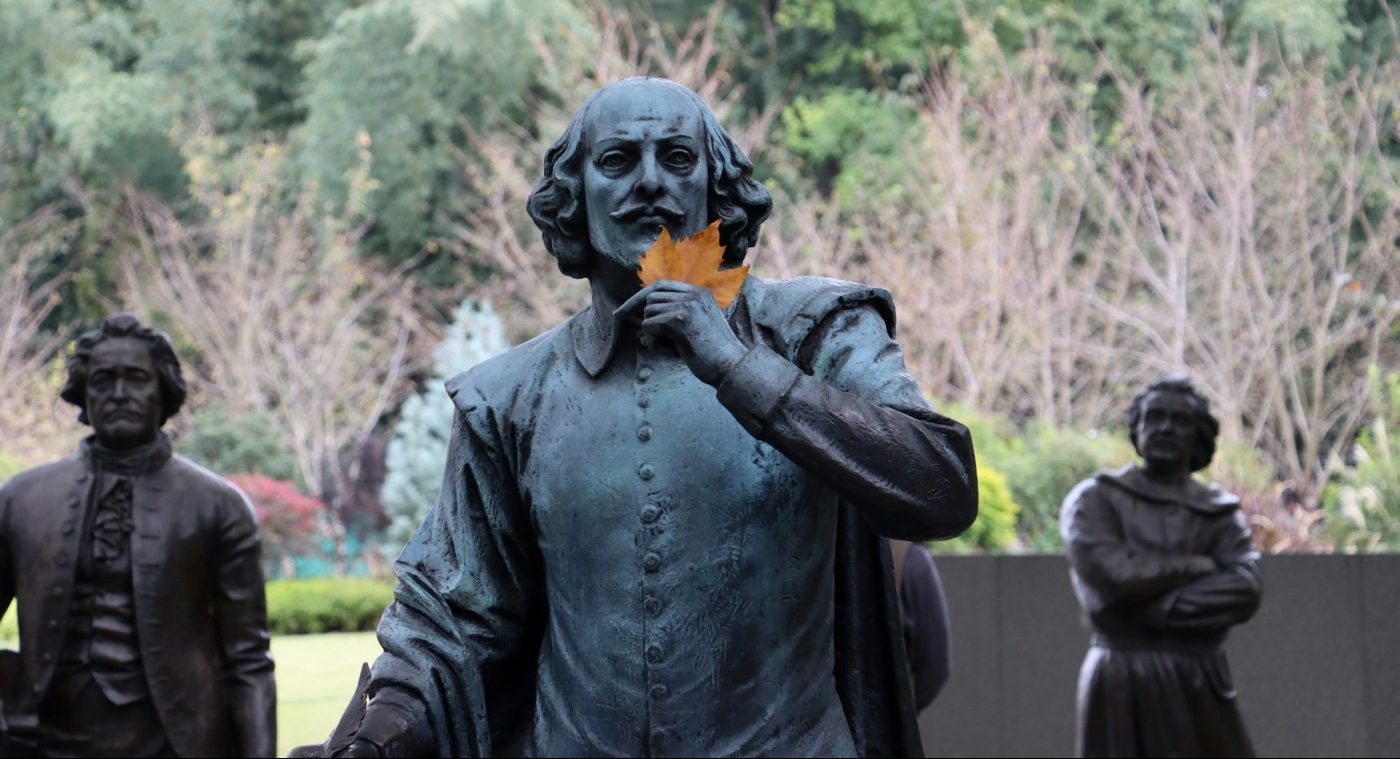Reimagining The Tempest: A celtic twist on Shakespeare’s classic at the Warwick Arts Centre
I recently attended the dress run of The Tempest, presented in the Warwick Arts Centre Studio as a collaboration between Warwick Shakespeare Society and Warwick University Drama Society. Prior to the show, I got to speak with both cast and crew members, including the director. As both an English student and general Shakespeare enthusiast, I was interested to see what they would do with The Tempest. It to be said – can you really do anything new with Shakespeare anymore?
Hawkins explained the efforts to humanise the work, without disregarding the context
This was exactly what I wanted to know in anticipation of watching the show. I spoke with the Assistant Producer Aaron Shelton, Director Casper Hawkins, and Cast Member Arthur Kemp, who all offered some interesting insights into the production. Alongside addressing some difficult themes within The Tempest, with the play exploring narratives such as slavery, race and assault, Shelton asserts that by “recontextualising it into a Celtic context”, they were able to “take away the racial element” involved. Hawkins built upon this, describing his desire to focus on themes of family, forgiveness and reconciliation, which are often seen both within The Tempest and a Celtic context.
Hawkins explained the efforts to humanise the work, without disregarding the context. For example, he explained the endeavour with the character of Caliban (Isobel Kelly), by “trying to remove some of the monstrous physicality references and make the character more human’’. This Celtic theme is evident in certain parts of the production, such as the dark depictions of trees as the backdrop, the neutral-coloured costumes and eclectic jewellery, as well as the bagpipes utilised.
I found the play to be professional and engaging, utilising soundscapes and costumes in an inventive way. The costuming of Ariel (Max Green) was highly effective, with rags and ties sewn onto a waistcoat. This made for lots of movement of fabric when Ariel moved, aiding his ethereal and magical persona of Ariel, as well as his constant struggle for freedom. As Shelton so neatly put it, as the play ends, ‘’he has the freedom he has been longing for, but he doesn’t have that purpose that he always had’’.
What makes Shakespeare a bit different is it is far more universal
Arthur Kemp
I did find the costuming of the fools, Trinculo (Arthur Kemp) and Stephano (Chloe Britain) who wore white vests and blue-denim dungarees, to be slightly jarring, in conjunction with the neutral costuming of the rest of the cast. Perhaps, this was a method to separate them from the seriousness of the wider content, however, this did not particularly work for me.
However, the fools themselves were a very interesting part of the production, and absolutely played convincingly. The fools had an effective relationship, between both each other and the other characters, such as Caliban, with certain moments of humour. In contrast to other productions of The Tempest I have seen, I found the direction of the fools to be slightly more dark, at times fuelled by malice, which potentially furthered the other themes and Celtic nature of the production. Arthur Kemp, who played Trinculo, asserts that “what makes Shakespeare a bit different is it is far more universal, and we are playing with characters who are far more archetypal”. This was clear through the portrayal of Trinculo and Stephano, who seemed to be harking back to other fools in Shakespeare’s catalogue of works in their performance.
The relationship between Miranda (Abi Guest) and Prospero (Hywel Edwards-Sim) was another aspect that stood out to me within the production. Miranda’s confusion and desperation towards her father became convincingly powerful throughout the production. In the first half of the play, Prospero, Miranda and Caliban undergo a very emotive, raw scene in which Caliban is scolded by Prospero, with the portrayal of anger being incredibly powerful to watch. Similarly to the fools, Prospero also appears to have a serious edge of malice, but the role of the overbearing father is depicted successfully.
The cast were cohesive and the play seemed to have hands on and engaging direction at the hands of Casper Hawkins
There is certainly an interesting use of space and staging, with all of the stage being utilised at points. This included the balcony, and even the aisles of the audience, which felt effective in making the audience feel immersed within the production. However, the significant lack of set felt a tad underwhelming, and for those less acquainted with the setting, I wonder how clear the setting would be without the aid of any set. Furthermore, the Celtic themes were an interesting take that I felt paid off as a whole, however, at one point a dance ensues that appears a nod to this heritage, but it felt slightly incongruous to the rest of the play – an element I am uncertain to whether it particularly added anything.
Overall, it was a thoroughly enjoyable watch and I felt the character portrayal and costuming was engaging and effective. The cast were cohesive and the play seemed to have hands on and engaging direction at the hands of Casper Hawkins.

Comments